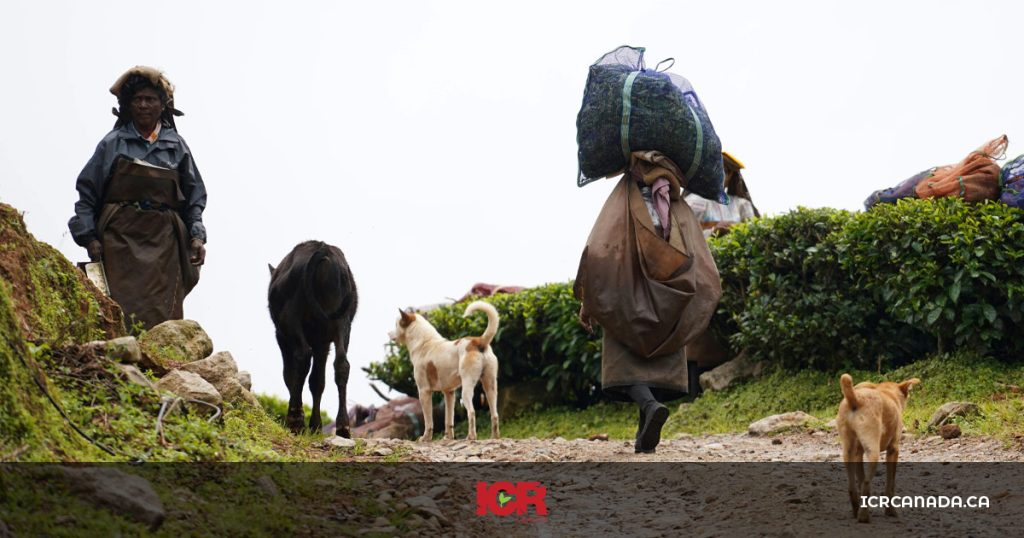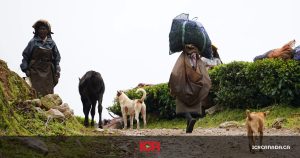Christians Face Persecution in Chhattisgarh, India

In recent weeks, Christians in Chhattisgarh, India, have faced alarming incidents of expulsion, violence, and persecution. The right to religious freedom, guaranteed under Article 25 of India’s constitution, has been blatantly disregarded in several villages, leaving Christian families displaced and fearful for their lives. Here’s a closer look at the events unfolding in the Sukma and Dantewada districts, the challenges faced by the Christian community, and the broader implications for religious freedom in India.
Forced Expulsions in Sukma: A Troubling Joint Resolution
Starting on November 17, Christians in eight villages, including Michwar, were subjected to an unprecedented resolution passed by their village councils. The resolution demanded that all Christians either renounce their faith or leave their villages. Non-compliance came with a severe warning: their properties would be looted. This resolution affected around 100 Christians in villages such as Dabba, Gonderas, and Kunna.
Despite the constitutional right to freedom of religion, one village chief claimed that the resolution overruled these rights. When the affected Christians tried to report the incident to the police in Michwar on November 18, they were denied assistance. Instead, they were taken to their farmland, where a mob of over 1,500 awaited them. The mob had already looted their harvest and reiterated their demands for conversion or exile. Shockingly, the police left the scene without intervening.
By November 19, the Chhattisgarh Christian Forum managed to lodge a formal complaint with district authorities. However, it wasn’t until November 21 that action was initiated. By this time, eight families, comprising 40 individuals, had been forced to abandon their homes and were taking refuge in a church in Michwar. Local NGOs stepped in to provide food and essential supplies to the displaced families.
The Christian Solidarity Worldwide (CSW) team in India highlighted the constant threats Christians face, especially in rural areas. Even simple acts like gathering for prayer can provoke hostility. A spokesperson noted, “When families are driven away from their villages, they lose their base and have to start all over again. Many do not return due to fear of hostility or further attacks.”
Violent Attack in Dantewada: Police Stand By as Christians are Beaten
The violence against Christians in Chhattisgarh extended beyond forced expulsions. On October 30, a more violent incident unfolded in the Dantewada district. Fourteen Christians, working on a communal farm, were attacked by hundreds of local tribal members, known as Adivasis. The Christians were beaten with wooden rods for refusing to abandon their faith, leaving several with severe injuries, including head trauma and broken bones. Their homes and harvest were also destroyed.
In a shocking failure of law enforcement, police officers present during the attack did little to intervene. One officer who attempted to stop the mob was injured, further highlighting the lack of authority and protection for the victims. Nagesh Micha, a Christian human rights activist, expressed his concern, stating, “The police, who are supposed to uphold the fundamental rights of an individual, have allowed 14 people to be beaten in their presence. This means there are higher authorities supporting the mobs.”
The attack in Dantewada underscores the broader issue of state complicity and the lack of accountability for violence against Christians. For the affected families, the trauma of these events is compounded by the challenge of rebuilding their lives from scratch.
Implications for Religious Freedom in India
The incidents in Sukma and Dantewada reflect a troubling trend of rising hostility toward Christians in rural India. These acts of violence and forced displacement are part of a broader pattern of religious intolerance. According to CSW, Christian communities often find themselves isolated and vulnerable, with limited recourse to justice or protection.
 This growing hostility has severe consequences for the victims. Families driven from their homes lose their livelihoods, community ties, and sense of security. Many are reluctant to return, fearing further attacks. The failure of local authorities to uphold constitutional rights further emboldens perpetrators and leaves religious minorities in an increasingly precarious position.
This growing hostility has severe consequences for the victims. Families driven from their homes lose their livelihoods, community ties, and sense of security. Many are reluctant to return, fearing further attacks. The failure of local authorities to uphold constitutional rights further emboldens perpetrators and leaves religious minorities in an increasingly precarious position.
Despite these challenges, the resilience of the Christian community shines through. NGOs and advocacy groups continue to provide critical support, while activists like Nagesh Micha work tirelessly to hold authorities accountable. However, addressing these systemic issues requires concerted efforts at all levels—government, law enforcement, and civil society.
In a country celebrated for its diversity, the persecution of Christians in Chhattisgarh serves as a sobering reminder of the ongoing challenges to religious freedom. Ensuring justice and protection for vulnerable communities is not just a legal obligation but a moral imperative that India must uphold.
